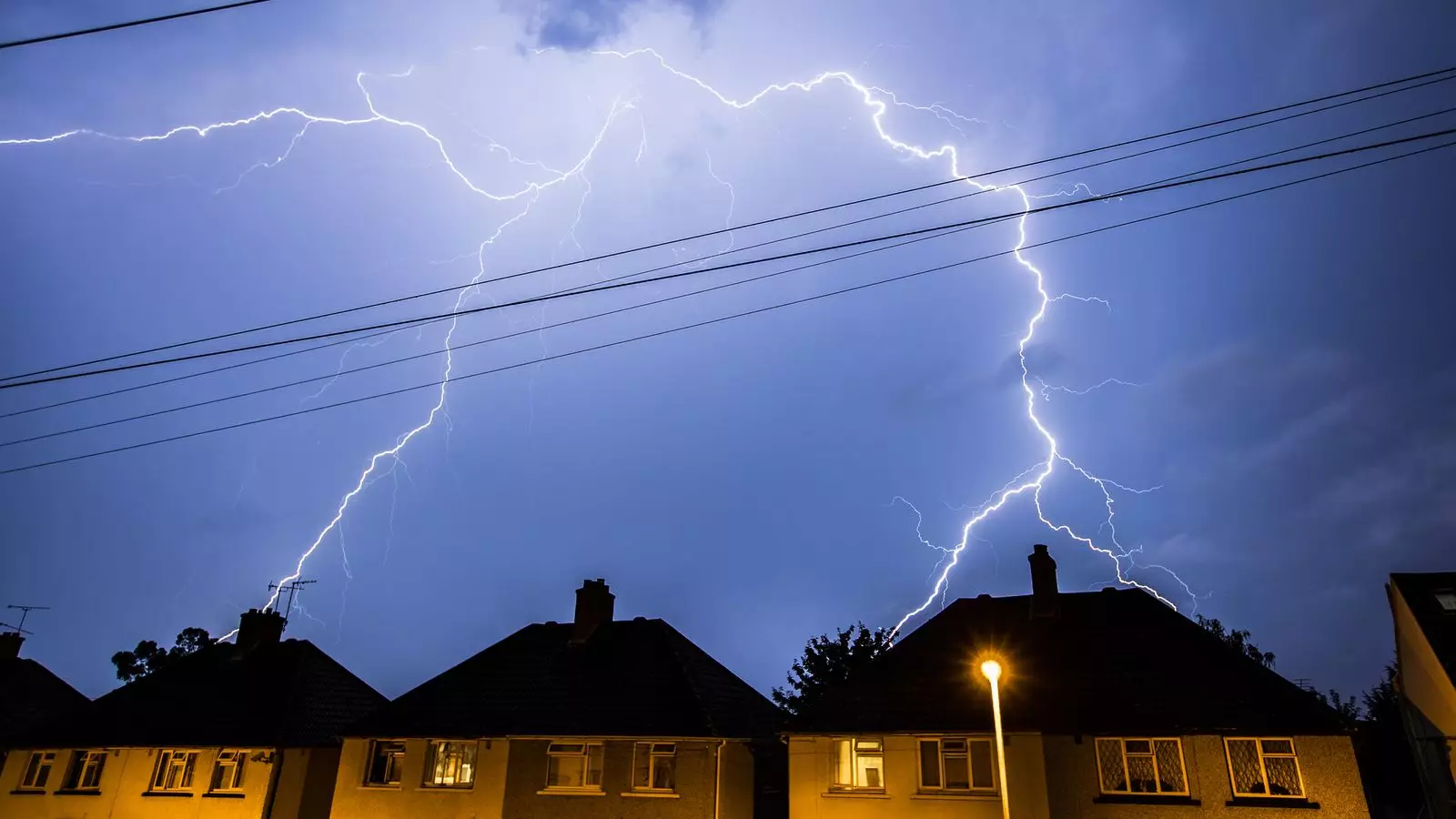The recent meteorological alerts for thunderstorms across southeastern England paint a picture of impending chaos, yet beneath this alarmist narrative lies a troubling complacency rooted in our collective response to weather crises. The amber and yellow warnings issued by the Met Office are not just about imminent rain; they symbolize a failure to recognize the systemic risks that climate change amplifies. While forecasters scream about “torrential” downpours and potential flooding, society seems to remain largely unprepared, largely dismissing the warnings as mere inconveniences rather than the harbingers of a new normal that demands urgent action and reflection.
The focus on immediate impacts—flooded roads, cancelled trains, power outages—is understandable, yet it deflects from the larger question: how did we arrive at a point where once-in-a-century events are now predictable yearly occurrences? The warnings are a symptom of broader climate inaction, a testament to decades of neglect in sustainable planning, infrastructure investment, and policy reform. These weather alerts, instead of serving as acts of caution, are increasingly being reshaped into routine drills—temporary distractions that ignore core vulnerabilities embedded within our societal fabric.
Climate Reality or Political Rhetoric? The Deception of Preparedness
The government, along with weather agencies, often packages these warnings as a sign of technological competency—an advanced system alerting us to risk. But does this technological advance translate into meaningful resilience? The answer remains a resounding no. The superficial nature of our preparedness is glaringly evident in declining reservoir levels and hosepipe bans across the country. We continue to prioritize short-term economic growth over long-term sustainability, ignoring the scientific consensus that such extreme weather patterns will become more frequent, intense, and unpredictable.
This dissonance between warning and action underscores a broader political failure. Policymakers prefer to play with fire—baking in economic interests and short-term political gains—rather than invest in resilient infrastructure, green energy, and comprehensive flood defenses. Meanwhile, the most vulnerable communities—those already battling social inequities—bear the brunt of these recurrent floods, with many at risk of being cut off or suffering tangible property damage. Such disparities reveal not just a failure to adapt to climate change but a fundamental neglect of justice and equity in our policymaking.
Echoes of a Future that We Can Still Avoid
There remains a window of opportunity to reshape this narrative, but it requires more than just reactive weather warnings. It demands a shift towards proactive climate governance that acknowledges scientific realities and prioritizes adaptation. Thundery storms and rising flood levels are symptomatic of our collective failure to address underlying causes—namely, the unaffordable pursuit of fossil fuels, complacency in urban planning, and a disregard for ecological integrity.
Despite the unsettling forecasts—up to 100mm of rain in a matter of hours—the prevailing attitude remains reactive rather than proactive. This is the illusion of safety fostered by fleeting technological fixes amidst a deeper crisis: ecological overshoot. The recent droughts and low rainfall levels further compound this crisis, revealing how shortsighted policies continue to neglect water conservation and sustainable resource management.
The complacency ingrained within our political and social systems resembles a metaphoric flood—slow but relentless in washing away the critical approaches needed. Instead of harnessing scientific insights for transformative change, society prefers to hide behind warnings, indulging in momentary relief while ignoring the urgent need for overhaul. The true lesson here is that weather extremes are not isolated acts of nature; they are the consequence of human indifference. Unless we seize this moment to reflect and mobilize for genuine change, these warnings will simply become the new normal—an enduring shadow of our own neglect.



Leave a Reply